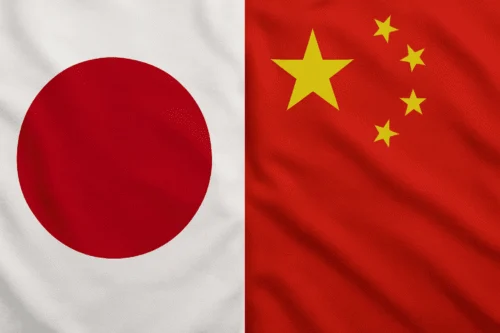
Background: Rising China–Japan Tensions
Japan’s new prime minister, Sanae Takaichi, said a Chinese move against Taiwan could trigger a Japanese military response. Beijing promptly warned Japan and shifted to visible countermeasures, including public travel guidance. According to available reports, a planned Li–Takaichi meeting at the G20 is not expected to proceed.
Insert dramatic eye roll here: Still, the rhetoric quickly rippled into markets and culture. Therefore, officials began managing fallout as both sides signaled hard lines. Tokyo dispatched a senior diplomat to Beijing to keep channels open.
Consequently, diplomacy bled into entertainment policy. The shift came fast and with clear optics. However, it also carried costs for distributors and audiences.
Immediate Cultural Impact: Film Postponements
Chinese film distributors, according to Reuters, “suspended the screening of at least two Japanese films in China.” Other outlets echoed the same development. The timing aligned with the diplomatic flare-up after Takaichi’s remarks.
State-linked reports described the postponements as measured. Yet the effect was immediate for cinema schedules. And it was immediately visible to fans waiting on imported titles.
Therefore, cultural trade again served as a signaling device. Soft power went into the penalty box for the week. The message traveled faster than any official demarche.
Details of Affected Releases
The two titles were family-friendly and science-forward. They were Crayon Shin-chan the Movie: Super Hot! and Cells at Work!. Reports listed the original mainland release dates as December 6 and November 22, respectively.
These were not obscure imports. They are long-running, trusted brands with broad recognition. Therefore, the postponements landed widely.
Moreover, distributors had already primed the market with teasers and presales. Cinemas had prepared showtimes. Fans had planned accordingly.
Uncertain Future: Indefinite Delays
Outlets said the new release dates “are not yet known.” Some reporting described the delays as “indefinite.” For now, there is only a calendar gap and a customer-service headache.
Furthermore, theaters faced practical issues. Some Beijing cinemas confirmed notice and prepared refunds. Others awaited formal guidance and held their fire.
Therefore, confusion met caution at the retail edge. Chains must manage expectations and cash flow. Schedules now carry asterisks.
Official Framing: Audience Sentiment and Prudence
State media framed the move as prudent, not punitive. China Film News and CCTV called the adjustment a “prudent decision.” They also linked it to souring audience sentiment after the Taiwan-related remarks.
This is not a ban, at least by the official description. Instead, it is a temperature check on the market. The line is that supply follows sentiment.
Because nothing says fiscal discipline like pausing cartoons to balance public mood. The irony, of course, writes itself. Still, the rationale is consistent with demand-side signaling.
Box Office Effects: Audience Backlash
The linkage to consumer response showed up in the numbers conversation. Reports said Demon Slayer: Infinity Castle saw a post-remarks decline in China. State-linked outlets described “strong dissatisfaction from Chinese audiences.”
Yet context matters. According to Japanese wire reporting, the film had earned nearly 400 million yuan in four days. That opening run suggests initial demand, even as momentum later waned.
Therefore, the backlash looks time-sensitive. The slope changed after the political shock. Markets, as usual, priced the headline.
Wider Diplomatic Actions
The film moves did not stand alone. Beijing also advised citizens to avoid travel to Japan during the dispute. Tourism and retail stocks felt the chill.
Moreover, Beijing signaled there would be no Li–Takaichi meeting at the G20. That absence speaks louder than a curt photo-op. It also freezes progress where dialogue might have thawed.
Meanwhile, Tokyo tried to stabilize relations. A senior envoy headed to Beijing to keep the conversation alive. Both sides, however, kept incentives aligned with pressure.
What It Means for the Business Side
Distributors now carry release risk that is not purely commercial. Political risk has crossed the foyer and reached the ticket booth. That risk is not easily hedged.
However, the messaging gives a possible off-ramp. If sentiment cools, schedules can restart with minimal retooling. Public framing leaves optionality on the table.
Still, opportunity costs accumulate with each week of delay. Marketing spend decays. Fan engagement drifts to streaming or piracy.
The Geopolitical Read
Culture remains a low-cost signaling arena. It is reversible, public, and legible to domestic audiences. Therefore, it’s often the first lever pulled.
But it also carries soft-power collateral damage. Audiences lose access; creators lose momentum. And neighbors learn to price politics into pop culture.
Ultimately, the films will likely land, eventually. Yet timing is part of the message. The calendar is now a negotiating chip.
The Bottom Line
Two films are on ice, and no new dates are set. Officially, this is prudent market management. Unofficially, it is politics by marquee.
The travel warnings and the G20 non-meeting deepen the chill. The entertainment desk is simply the most visible tip. For now, the projector is off, and the signal is clear.
Sources
- Reuters: China suspends Japanese film releases as diplomatic crisis deepens
- Financial Times: China deepens pressure on Japan with travel bans and cancelled events
- Nippon.com (Jiji Press): Japanese Movie Releases Reportedly Postponed in China
- Global Times: Chinese film importers, distributors follow Chinese audience sentiment to postpone release of Japanese films
- The Guardian: China travel warning for Japan sends shares in tourism and retail companies plunging
- Global Times: Some Beijing cinemas confirm receiving notice to postpone two Japanese films
- Associated Press: China warns Japan over potential military involvement in Taiwan

